Our Leadership Advisory Team
The Leadership Team are responsible for overall strategy, direction and output for the APGI and are accountable for reporting back to the primary funding bodies regarding progress.
Anthony Gill- Chairman
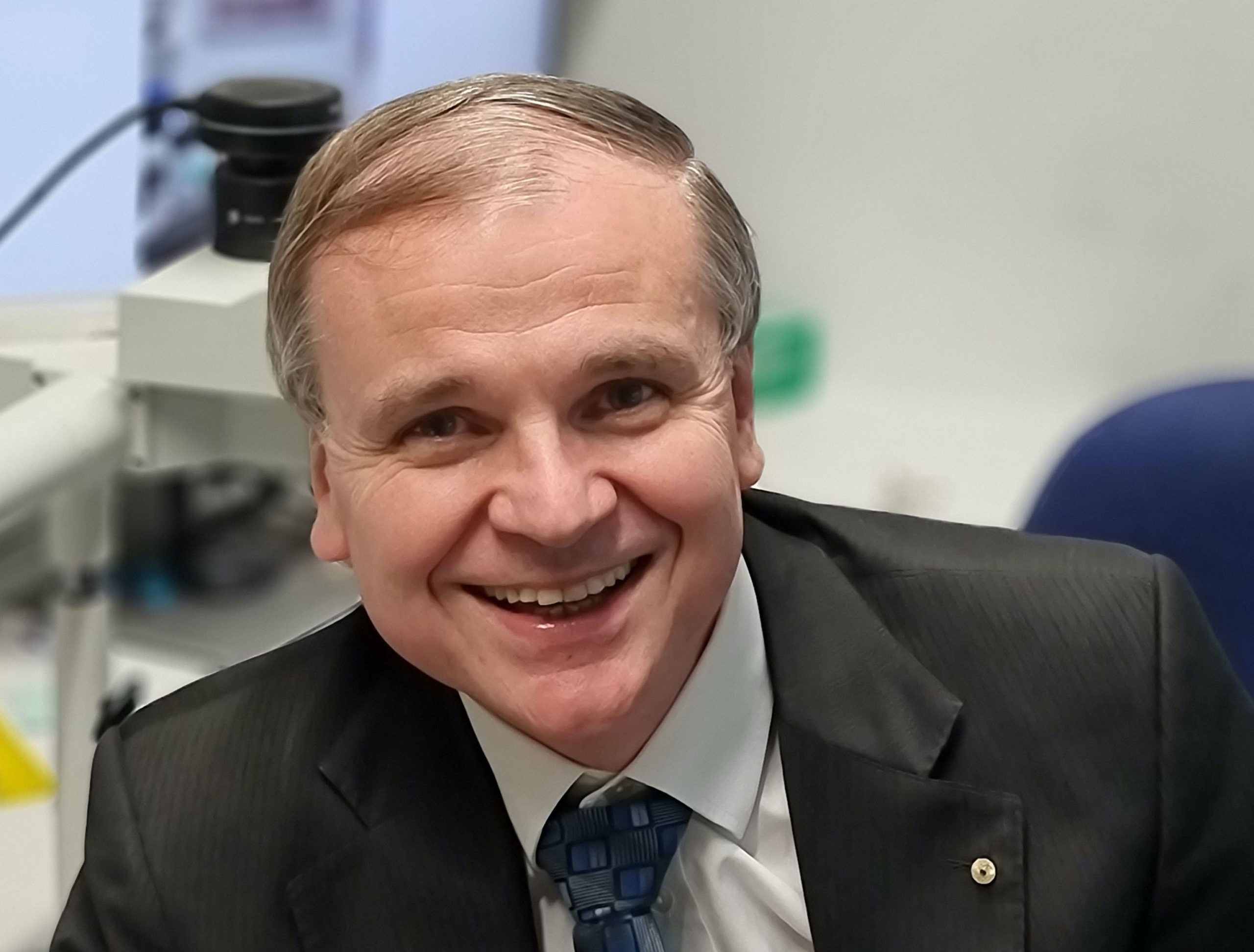
Anthony is Professor of Surgical Pathology at the University of Sydney and chairman of the APGI.
He graduated in medicine from the University of Sydney in 1997 with the Harry J Clayton Memorial Prize for first in the university in Medicine and Clinical Medicine; the Hinder Memorial Prize for first in the university in Surgery and Clinical Surgery; the Robert Scot Skirving Memorial Prize for first in the university in Medicine and Surgery and the Royal North Shore Hospital Medal. He completed his specialty training in surgical pathology (FRCPA) in 2005 and since then has divided his time between diagnostic pathology as a senior staff specialist at Royal North Shore Hospital and medical research. His research has concentrated on translating advances made in the understanding of cancer at the basic science or molecular level into diagnostic tests which can be applied in the routine surgical pathology laboratory on patient biopsy specimens.
He was awarded the prestigious Benjamin Castleman award by the United States and Canadian Academy of Pathology (USCAP) as well as the John Loewenthal Medal and a higher doctorate by publication (MD) from the University of Sydney in 2011; the NSW Premier’s Award for Excellence in Translational Cancer Research in 2013, the Sir Zelman Cowen Universities Prize for discovery in Medical Research in 2014, the Ramzi Cotran Young Investigator Award from the United States and Canadian Academy of Pathology (USCAP) recognizing a body of the investigative work which has contributed significantly to the diagnosis and understanding of human disease, and the Distinguished Pathologist Award from Australasian division of the International Academy of Pathologist in 2021.
He has co-authored over 500 highly cited original research publications in addition to numerous invited review articles and book chapters. He is a standing editorial board member of the World Health Organization / International Agency for Research on Cancer (WHO/IARC) classification of tumours which is considered the peak international body in surgical pathology and sets diagnostic criteria for tumours applied around the world. In 2018 he was appointed a member of the order of Australia (AM) in the Queens Birthday honours list “for significant service to medical research in the field of surgical pathology as an academic, author; adviser, and mentor”.
Sean Grimmond
Sean Grimmond is Director of the University of Melbourne Centre for Cancer Research and holds the Bertalli Chair in Cancer Medicine. Sean received his PhD in Human Cancer Genetics from the University of Queensland, is a Scientific Fellow in Royal College of Pathologists of Australasia and a Fellow of the Australian Academy of Health and Medical Sciences. Sean is recognised for pioneering whole-genome & transcriptome sequencing in Australia and led our country’s ICGC efforts, identifying the mutagenic processes, driver mutations, potential therapeutic vulnerabilities, and mechanisms of drug resistance in many of our most challenging malignancies. Sean currently co-chairs the VCCC Precision Oncology Program and leads the UMCCRs Cancers of Low Survival & Unmet Need Initiative. His current research focuses on the clinical genomic analysis of challenging cancers, ex-vivo drug screening and further cancer genome discovery.

Amber Johns
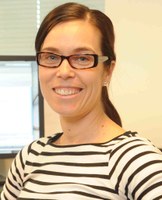
Amber Johns is a multi-disciplinary researcher working at the connection of science and technology, bringing together the traditionally segmented fields of clinical practice, basic science and policy. The focus of Amber’s career in the health industry has been to establish and lead complex, large-scale international research programs. Amber has played a lead role in project development and management for several landmark cancer research projects, including the Australian Pancreatic Cancer Genome Initiative and the International Cancer Genome Consortium (ICGC). Through these projects Amber has been delving into the complex areas of international data sharing, regulatory barriers and interoperability of technology and data systems for many years. Amber’s work to date has played a global role in the ethical, societal and legal aspects of genomic research through her involvement in the ICGC and the Global Alliance for Genomics and Health (GA4GH). Amber is passionate about facilitating the sharing of information and creation of cross-disciplinary communities and networks. Amber was the project manager for the APGI from 2006-2021 and continues to hold an academic appointment with the Garvan Institute of Medical Research.
Nic Waddell
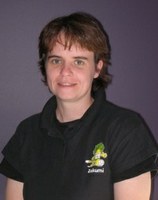
Dr Nic Waddell is head of the Medical Genomics group and deputy coordinator of the Genetics and Computational Biology Department at QIMR Berghofer Medical Research Institute. She is an NHMRC Career Development Fellow, cancer researcher and bioinformatician who is an expert in the interpretation of multiple data types, including next generation sequence data. She is a member of the International Cancer Genome Consortium (ICGC) project and has played a key role in all three Australian ICGC projects (pancreatic, ovarian and melanoma). She leads the genomics of several other cancer genome projects including mesothelioma and oesophageal cancer. Her research focuses on the identification of cancer driving events, mutational processes and therapeutic opportunity in cancer.
Lorraine Chantrill
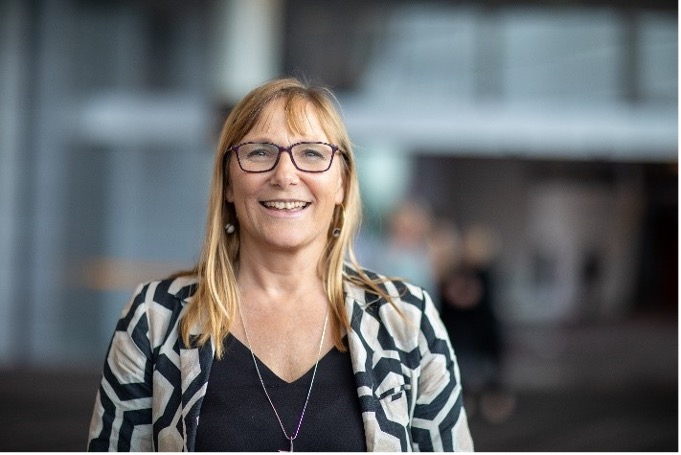
Dr Lorraine Chantrill is a Senior Staff Specialist Medical Oncologist and Head of Department for Medical Oncology across the Illawarra Shoalhaven Local Health District (ISLHD) and Director of Clinical Trials.
Dr Chantrill treats patients with any cancers of the digestive tract as well as gynaecological and lung cancers.
She is a key opinion leader and expert in the field of pancreas cancer. Lorraine completed a PhD by research in the Pancreas Cancer Group at The Kinghorn Cancer Centre in pancreas cancer genomics, and was a key member of APGI and the International Cancer Genome Consortium (ICGC). Lorraine continues to be an active clinician researcher trying to bridge the gap between the bench and the bedside.
She has extensive experience managing Oncology Clinical Trials and is the Principal Investigator on several clinical trials in gastrointestinal cancers. Lorraine is keen to increase the number of clinical trials conducted in the Illawarra and Shoalhaven Local Heath District. She believes clinical trials are not only vital for research but offer hope to participants. Lorraine is keen to build the region’s clinical trial portfolio to give patients access to some new and emerging therapies.
The Australasian Gastro-Intestinal Trials Group (AGITG) create and facilitate clinical trials in cancers of the digestive tract.
Lorraine has served on the AGITG Upper GI Working party since inception in 2011 and has chaired the Working Party 2014-2019. She was appointed to the Board of Directors of AGITG in August 2016 and in May 2020 as the first female Chair of the AGITG and GI cancer institute.
Lorraine is an active member of the Pankind Scientific Advisory Panel who are responsible for assessing research investments for that charitable foundation. Pankind is a member of WPCC.
Most recently, Lorraine was appointed as Chair of the Australian National Pancreatic Cancer Roadmap Steering Group who are responsible for developing a National Pancreatic Cancer Roadmap (the Roadmap) to support improved outcomes and survival for people with pancreatic cancer.
Paul Timpson
In the laboratory Paul’s group use novel state-of-the-art intravital imaging approaches and new fluorescent biosensor mouse models to uncouple the metastatic process into key stages in order to pinpoint critical events that drive tumour invasion and metastasis. “Our approach permits real-time imaging ranging from whole body tumour progression to single-cell invasion events, and helps us to understand how tumour cell (a) dissociation (b) invasion and (c) progression are controlled and how this is linked to the development of invasive or metastatic cancer.”
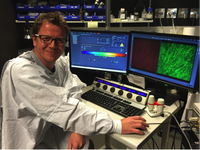
John Pearson

John Pearson leads the Genome Informatics Group at QIMR Berghofer and has spent the last 15 years working on solutions for next-generation sequencing analysis in the USA and Australia. Originally trained at The University of Queensland, John has qualifications in science, computer science and management and has spent 30 years leading teams creating novel software and analysis technologies for medical researchers. He has been part of the International Cancer Genome Consortium (ICGC) and has held software development grants from the American Cancer Society, the National Institutes of Health and Microsoft, and was also a Principal Investigator on one of the first grants awarded under the 1000 Genomes Project. He has led projects for the Australian Genomics Health Alliance (AGHA) and the Queensland Genomic Health Alliance (QGHA). John’s team works on the use of high-performance computing and software development to enable the analysis of genomic data at scale, and on long read sequencing analysis.
We acknowledge and thank our past Leadership Team Members: Andrew Biankin (Chairman 2009-2015) and Peter Wilson (2013-2017) for their valuable contributions.

